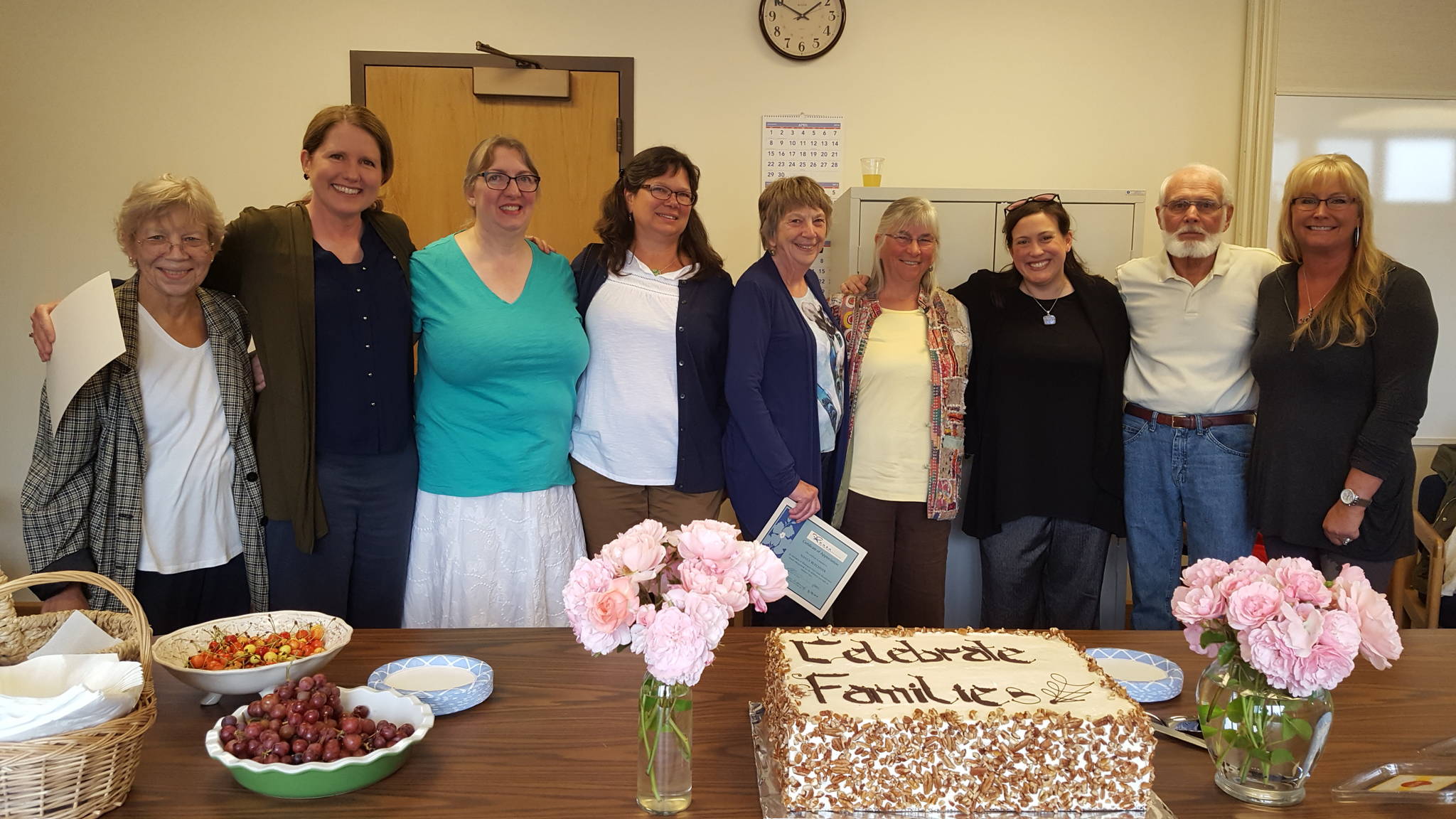Submitted by San Juan County
Commemorating parents who have worked hard to successfully reunify their families after significant struggles, the Washington Supreme Court Commission on Children in Foster Care proclaimed June Washington’s Family Reunification Month. The commission encouraged courts and communities across the state to recognize parents for their commitment to overcoming obstacles in order to learn, improve and bring their families back together. The celebration also recognizes the work of social workers, court staff, foster parents, attorneys, CASA volunteers, parent mentors and others who become part of a team monitoring and guiding parents as they move forward.
San Juan County staff celebrated family reunification and recognized our Court Appointed Special Advocate volunteers with a gathering in San Juan County Superior Court on June 28.
Safe reunification of families is the primary goal of “dependency,” the legal process in which children are taken into the oversight of the state because of deficiencies in adequate care and safety within the home.
“CASA volunteers play a critical role in the dependency process. They represent the interests of the individual children—not the parents or the state. CASAs engage with the children and other interested persons in order to assess the situation from the child’s perspective and to provide the court with objective information and unique insight,” said Judge Katie Loring.
CASA volunteers also provide continuity to children and families undergoing considerable stress and change. In San Juan County, a CASA volunteer is assigned to a child very early in the dependency proceeding, and commits to staying with that child through completion of the dependency proceeding, which can last for a significant period of time depending on the needs of the individual family.
“The CASAs are so fundamental to the case because they are often the one person connected to the court case for the life of the case,” said Linnea Anderson, juvenile court administrator. “There may be many social workers and attorneys, and the children may go to many different placements, but the CASA is the one constant during the life of the case.”




